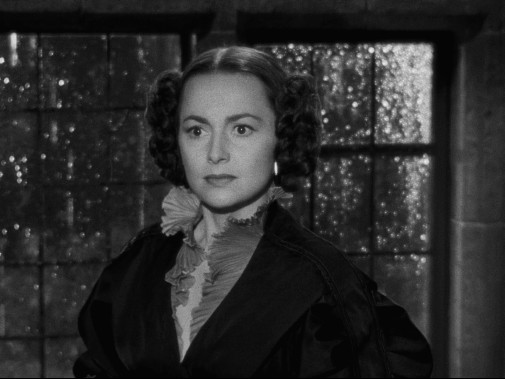
As you know, Olivia de Havilland passed away on Saturday. She leaves behind a filmography full of immortal classics as well as a legacy that still shapes the American film industry. At first glance, de Havilland might seem like an odd choice for this series. Her most acclaimed roles did nab Oscar nominations and she won twice. Still, there was, at least, one occasion when the great Olivia could have considered herself snubbed by AMPAS. It happened in 1952 when the actress returned to the screen after a short period dedicated to the stage. Surely a wise move since The Heiress (1949) was undoubtedly a tough act to follow.
Her next feature after the break was a Daphne du Maurier adaptation that's noteworthy for at least two reasons: one, it launched the career of Richard Burton in Hollywood and two, it went on to score four Oscar nominations. We're talking about My Cousin Rachel…
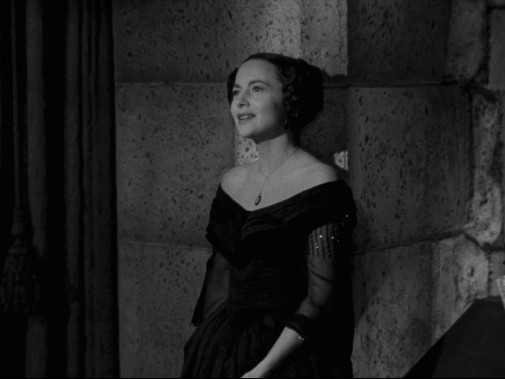
While not as famous as Rebecca, The Birds and Don't Look Now, My Cousin Rachel is one of du Maurier's best novels and most adapted works. Since its publication in 1951, at least two major motion pictures have been made out of it, two radio dramas, one prestige miniseries, and even a stage play. That's a tad surprising considering how finicky the original text is, full of paranoia and an overwhelming ambiguity that's better suited for the page than any other medium. It tells the story of Philip, a 19th-century Cornish estate owner who was raised by a beloved cousin named Ambrose. At the onset of a particularly damp winter, the older man travels to Italy for his health and there he falls in love and marries a woman, Rachel.
The letters Philip receives from his guardian are initially full of the joy of a newlywed, but they gradually sour into something more sinister. Ambrose is convinced Rachel is tormenting him, perhaps plotting his demise. When he does indeed die, Philip is consumed by a need to avenge him and castigate his cousin's widow. However, when Rachel arrives from Italy, a peculiar game of deceit and seduction (or is it plain romance?) makes Philip fall in love with her. As the days go by, and her behavior becomes increasingly suspicious, our tragic hero has the flame of doubt rekindled in his heart. The conclusion of the tale is a cruel one, especially because of its lack of clarity. Whether Philip's paranoia was justified or not is unclear, but the result is still a shadow of Death and unhappiness over everyone's lives.
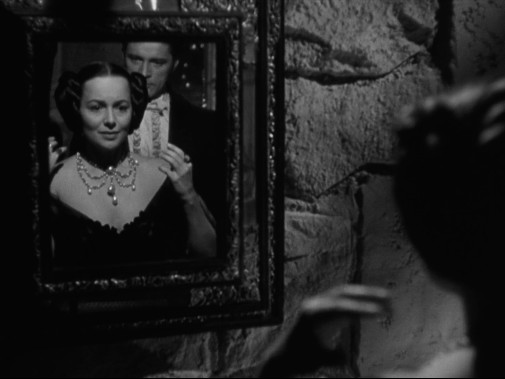
As you can deduce, the titular role of Rachel is a nightmare part whose difficulty is hard to overstate. To make it work, an actress must become a nebulous storm of opposing ideas, a fleshy materialization of doubt rather than a person. Rachel is a glamorous specter that seduces and frightens in tandem. In one moment, the spectator must be able to believe both versions of her character, the devil and the saint, and no clarity can be offered by the performer or else the story's spell would be broken.
Thankfully, Olivia de Havilland was up to the challenge and her performance is a wonder to behold. Daphne du Maurier may have been unsatisfied with this adaptation and de Havilland's take on her character, but I can find little fault in the Oscar-winner's work.
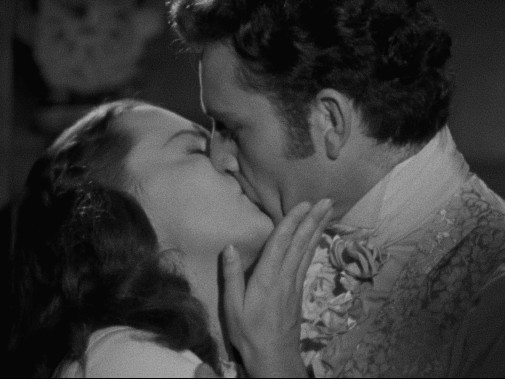
Appearing 25 minutes into a 98-minute movie, Rachel's arrival is highly anticipated. Before we meet her, like Philip, we've heard several conflicting reports about her character and await to see which version of the person is true. Gliding through the Victorian sets in beautifully anachronistic costumes and a Wallis Simpson-esque hairdo, Olivia's Rachel is disarmingly gorgeous. However, there's something off about her poise; It feels a bit too studied to be true, too perfect in its elegance and arch appeal. A big part of this may be her voice and the way she paces each line, almost as if she were following an offscreen metronome. Her cadence is pleasing to the ear, faintly musical, but drained of any hint of spontaneity. It sounds wrong.
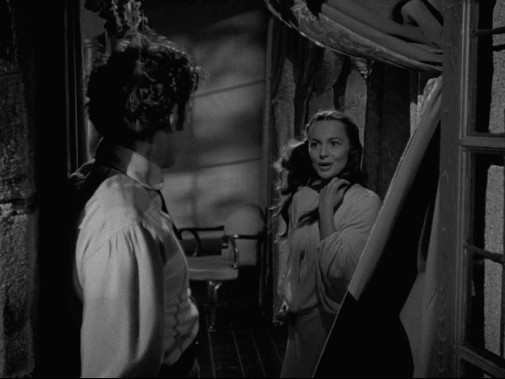
Olivia de Havilland was a master at using her voice, often manipulating her timbre and projection to show a character's transformation or undercut a line's sincerity. Her two Oscar-winning roles are good examples of this particular skill, but My Cousin Rachel doesn't stand too far behind them. This is a performance that strides the line between the vicious black widow and the tragic romantic, the voice an essential part of it. Both identities are performed at two levels, suggesting truthfulness and deceit. All of this coexists in kaleidoscopic simultaneity, an acting challenge that is overtly performative and seductive too. It's sweetness reverberating with notes of fakery, ominous threat laced with the helpless panic of a trapped woman.
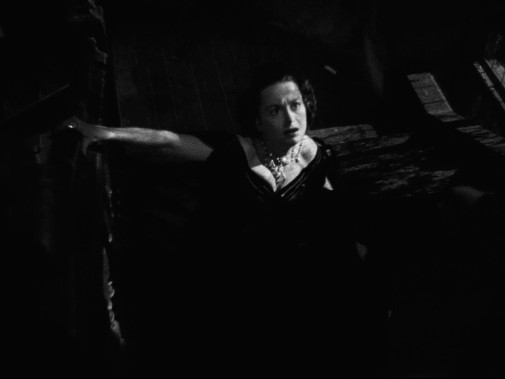
Looking at de Havilland's Rachel, it's easy to see why someone could become obsessed with her, but also feel doubtful of her intentions. The mystery is part of the appeal as is the perverse motherly quality she adds to her and Burton's amorous interludes. The Oedipal undertones color the eroticism of their attraction, a maternal hand guiding a heated kiss, and the prideful lust that comes from the gift of a necklace. The actors thus bring a sexual charge to this gothic mystery, and they should be commended for that. They also help delineate some of the picture's most important, but unsaid themes, like the way a woman's power is often perceived by men as something frightening.
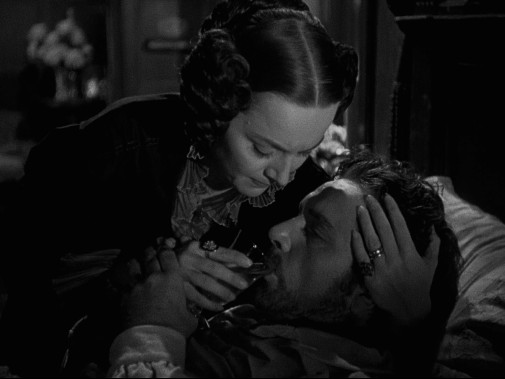
My Cousin Rachel is as much a tale of paranoia as it is a tale of misogyny and possessiveness which addle the mind and poison men's spirits. Olivia de Havilland is the vessel for all those difficult ideas and she delivers an astounding star turn along the way. Great performances usually manifest when actors exteriorize interiority, making the goings-on of someone's mind visible for the camera. In this movie, the opposite is true. Olivia de Havilland's Rachel is only as good as she is opaque. The actress never falters. Instead of crystal-like transparency, hers is a characterization of velvet opacity, a question that's never answered.
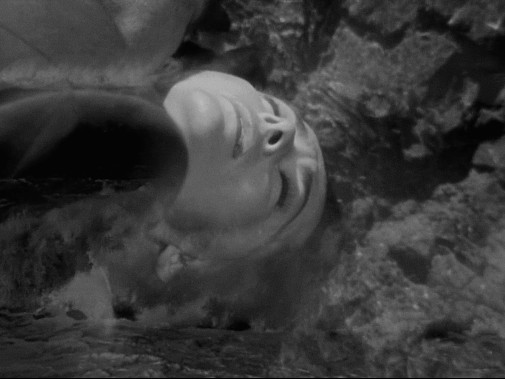
The 1952 version of My Cousin Rachel is available to stream from iTunes, Amazon, Google Play, Youtube, and others. Go watch it and honor the memory of the great Olivia de Havilland.